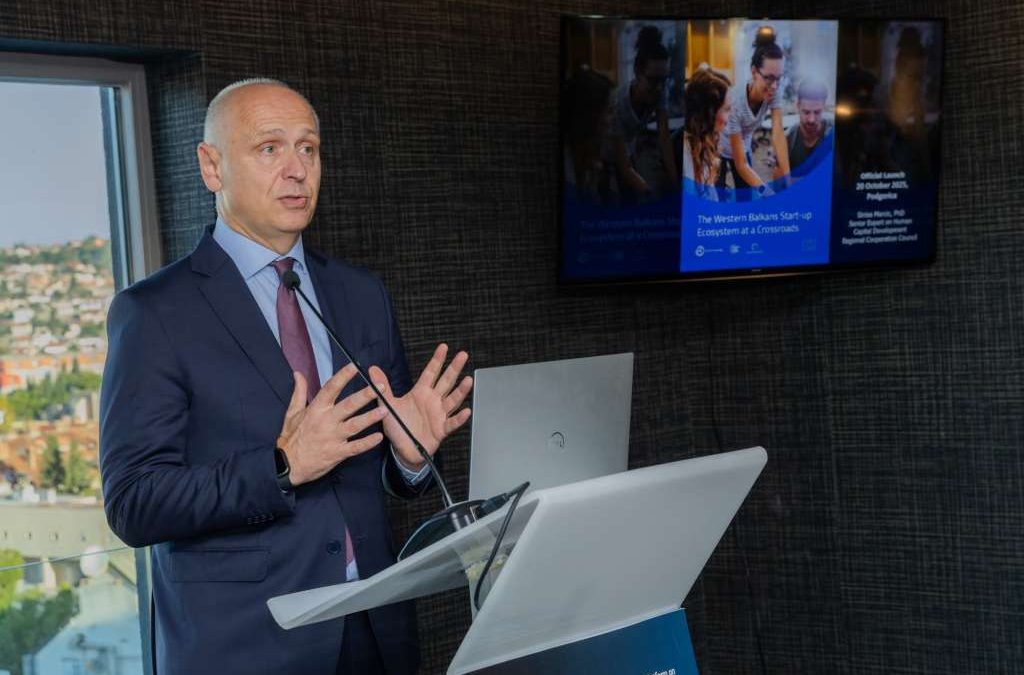Sarajevo/Podgorica, (Fena) – The Regional Cooperation Council (RCC), together with the European Institute of Innovation and Technology (EIT) and the European Enterprise Network (EEN), presented a joint study “The Startup Ecosystem of the Western Balkans at a Crossroads” at the ministerial meeting of the Western Balkans Platform for Research and Innovation Management.
The meeting was organized by the European Commission, Poland as the presidency of the Council of the European Union, and the Government of Montenegro.
The study, which represents the first regional analysis of the startup ecosystem in the Western Balkans, was presented by the Secretary General of the Regional Cooperation Council, Amer Kapetanović, and the Deputy Director General of the European Commission’s Directorate-General for Research and Innovation, Signe Ratso.
According to the report, around 150,000 people are employed in the information and communication technology sector in the region, and the sector’s contribution to GDP is 2 percent. However, startups raised only 29.5 million euros last year, which is significantly less compared to neighboring EU countries. The main challenges continue to be limited private investment, uneven regulation, and brain drain.
Kapetanović stated that the startup ecosystem in the region is full of entrepreneurial energy, but it lacks structured support for sustainable growth.
– That is why we have prepared the concept of the “Regional Innovations for Startup Excellence” (RISE) program, which aims to connect innovative entrepreneurs with experienced mentors and provide targeted training to address the skills gap, as well as certain smaller financial resources to help teams overcome the critical first phase of development – he emphasized.
He noted that the RISE Program will assist inexperienced innovative teams as well as promising startup companies in transitioning from concept to market-ready products.
Deputy Director General Signe Ratso mentioned that the aforementioned report combines the expertise of the EIT in the field of innovation and entrepreneurship, the role of the Regional Cooperation Council in promoting regional integration, and the EEN’s extensive support network for small and medium-sized enterprises in the region.
– We are working together to strengthen the innovation ecosystem, reduce disparities, and ensure that local innovators can reap all the benefits of the European single market for innovation – she added. (24.10.)
 go to the original language article
go to the original language article
